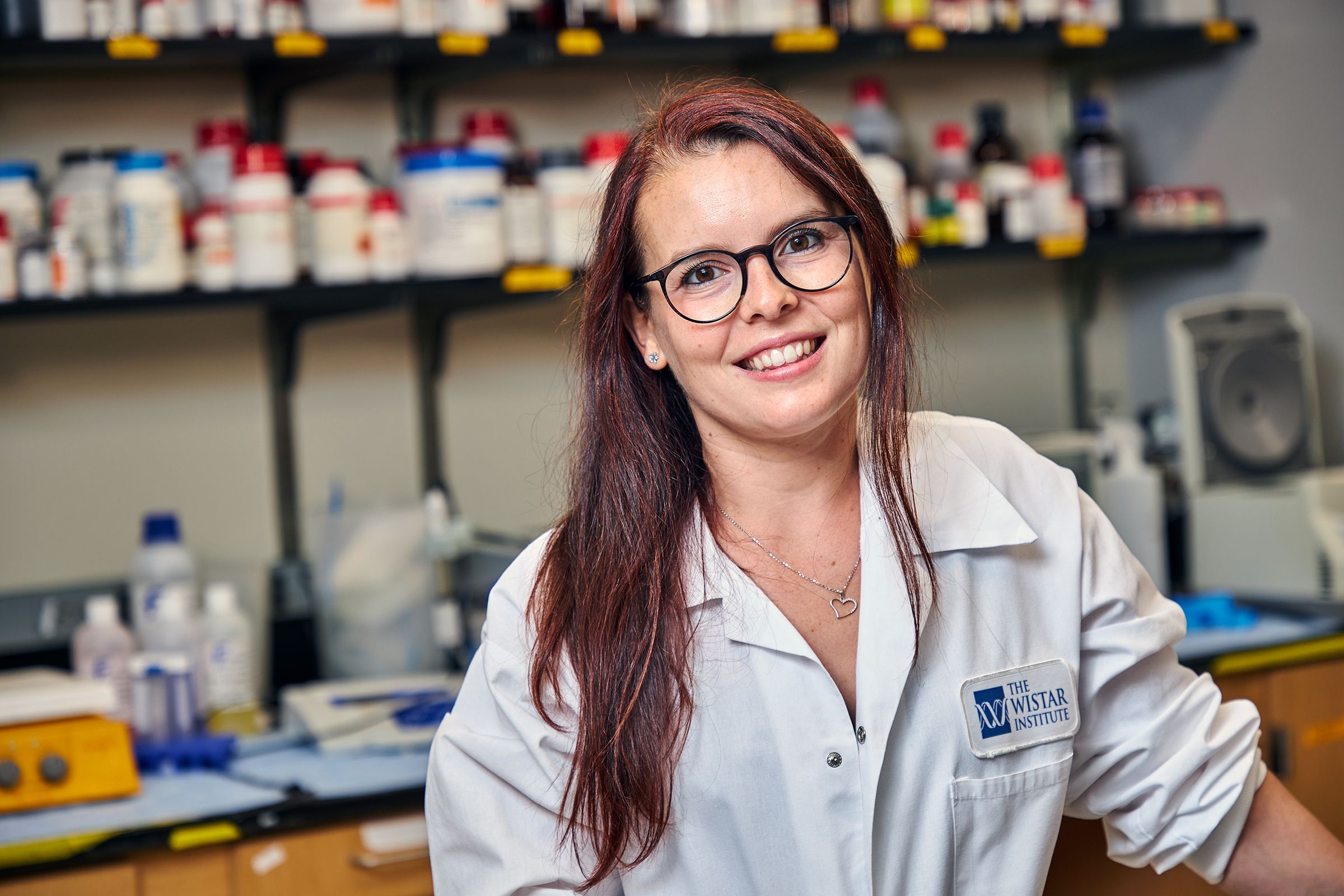The Wistar Institute Announces New Caspar Wistar Fellow, Dr. Irene Bertolini
Wistar scientist joins faculty to pursue research in breast and brain cancers
PHILADELPHIA—(Feb. 13, 2024)— The Wistar Institute, an international biomedical research leader in cancer, infectious disease, immunology, and vaccine development, is pleased to announce the recruitment of Irene Bertolini, Ph.D., to the Ellen and Ronald Caplan Cancer Center, where she joins Wistar’s Immunology, Microenvironment, and Metastasis Program as a Caspar Wistar Fellow.
Dr. Bertolini’s promotion to Wistar faculty is made possible by the Caspar Wistar Fellows Program, which supports outstanding junior scientists in the early stages of their careers as independent investigators. As a faculty member, Dr. Bertolini now runs her own laboratory, which allows her to pursue and develop her research interests in collaboration with Wistar scientists as well as biomedical researchers throughout the world.
“I’m both excited and grateful for the opportunity to join the faculty of The Wistar Institute as a Caspar Wistar Fellow,” said Dr. Bertolini. “I know first-hand the exceptional environment and resources that Wistar has to offer new investigators like me — I can’t think of a better place to start my lab.”
Dr. Bertolini is establishing the Bertolini lab to study the relationship between breast & brain cancers and extracellular vesicles, which are packets of biological materials that cells emit and exchange. Certain extracellular vesicles from cancerous cells can contribute to conditions that can promote cancer’s growth and spread, and Dr. Bertolini’s research program aims to characterize — and, ultimately, find a way to stop — the pro-cancer mechanisms of extracellular vesicles.
“Irene has been an invaluable member of my lab for years, so it is a special pleasure for me to watch her step up to the role of Caspar Wistar Fellow,” says Dario Altieri, M.D., Wistar president and CEO, director of the Ellen and Ronald Caplan Cancer Center, and the Robert and Penny Fox Distinguished Professor. “With years of experience and a love for her work, Dr. Bertolini will do the Wistar name proud. Her work on the tumor microenvironment and extracellular vesicles is an exciting contribution to Wistar’s cancer research, and I look forward to seeing what the Bertolini lab will accomplish.”
###
The Wistar Institute, the first independent, nonprofit biomedical research institute in the United States, marshals the talents of an international team of outstanding scientists through a culture of biomedical collaboration and innovation. Wistar scientists are focused on solving some of the world’s most challenging and important problems in the field of cancer, infectious disease, and immunology. Wistar has been producing groundbreaking advances in world health for more than a century, consistent with its legacy of leadership in biomedical research and a track record of life-saving contributions in immunology and cell biology. wistar.org
For a printable version of the press release, click here.

